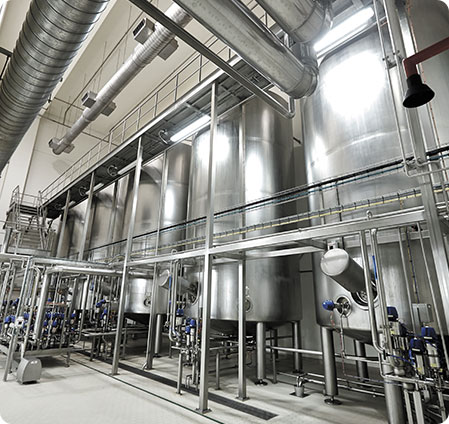As a company heavily reliant on agriculture for sourcing raw materials, we recognize the importance of effectively managing and conserving water and watersheds throughout our operations and supply chain. This commitment to water preservation also aligns with safeguarding the fundamental human right to water and contributes to the long-term sustainability of our business. Water conservation is an important component of Saudi Arabia's Vision 2030, which advocates the imperative of addressing and mitigating the impending water crisis while promoting water conservation and stewardship. Consequently, water management forms an important part of our environmental objectives, ensuring alignment with the latest industry best practices for companies to establish freshwater conservation targets.
In 2019, we formed a water steering group as part of our sustainability strategy development process which has been instrumental in setting our water management targets and action plan for improving water efficiency across our operations. Serving as a collaborative platform for knowledge exchange, the group remains integral in driving initiatives aimed at nurturing our water conservation efforts both presently and in the future.
In 2018, Almarai joined the Alliance for Water Stewardship (AWS), a move that has significantly increased our efforts in water conservation and stewardship within the communities where we operate. AWS is dedicated to fostering a water-secure world that supports the upliftment of people, cultures, businesses, and nature, both presently and in the future. Through this partnership, our network has gained insights into and implemented best practices in our business operations, aiming to reduce our environmental impact and conserve water resources wherever possible. We have integrated enhanced efficiencies into our arable and pasture farming practices, resulting in increased yields with reduced water consumption. In line with our commitment to innovation, we have introduced water management systems such as water metering, monitoring, and risk assessments to gain a comprehensive understanding of our water usage and identify areas for improvement. Furthermore, we have developed water stewardship plans to ensure that our operations align with AWS standards. As a company dedicated to innovation, we will continue to increase learning within our supply chain and drive performance improvements while decreasing our overall water usage.

In 2022, we published our Water Position Statement, outlining our commitment to greater water stewardship. This statement sets out a longer-term strategy in line with our wider sustainability goals and will act as a system of governance for years to come, engaging our workers and business units in best practice thinking and culture. We have also been actively promoting awareness regarding the significance of water conservation across our operations. Our assessments of water culture have proven effective in changing employees' attitudes toward water stewardship, guiding our strategic approaches and responses. This tool for employee engagement empowers our workforce and fosters a culture of responsibility and best practices, resulting in increased individual awareness and concern for water conservation. Cultivating a positive workplace culture is crucial for achieving our sustainability objectives, and technology plays a pivotal role in this initiative. We have deployed comprehensive monitoring systems across our facilities to pinpoint areas of inefficiency and have upgraded our supervisory control and data acquisition systems along with metering systems to gain deeper insights into our water usage, disposal methods, and leak risks. This technological infrastructure enables us to rapidly address any issues, leading to significant reductions in both water and energy consumption. We remain committed to leveraging technology to enhance our sustainability efforts and minimize our environmental footprint.




| Goal/Target | Progress |
|---|---|
| Increase water efficiency across our Manufacturing, Sales, Distribution and Logistics Divisions by 15% by 2025 (against a 2018 intensity baseline) | |
| Initiate and support collaborative efforts with stakeholders to address water risk and enhance conservation by 2025 |